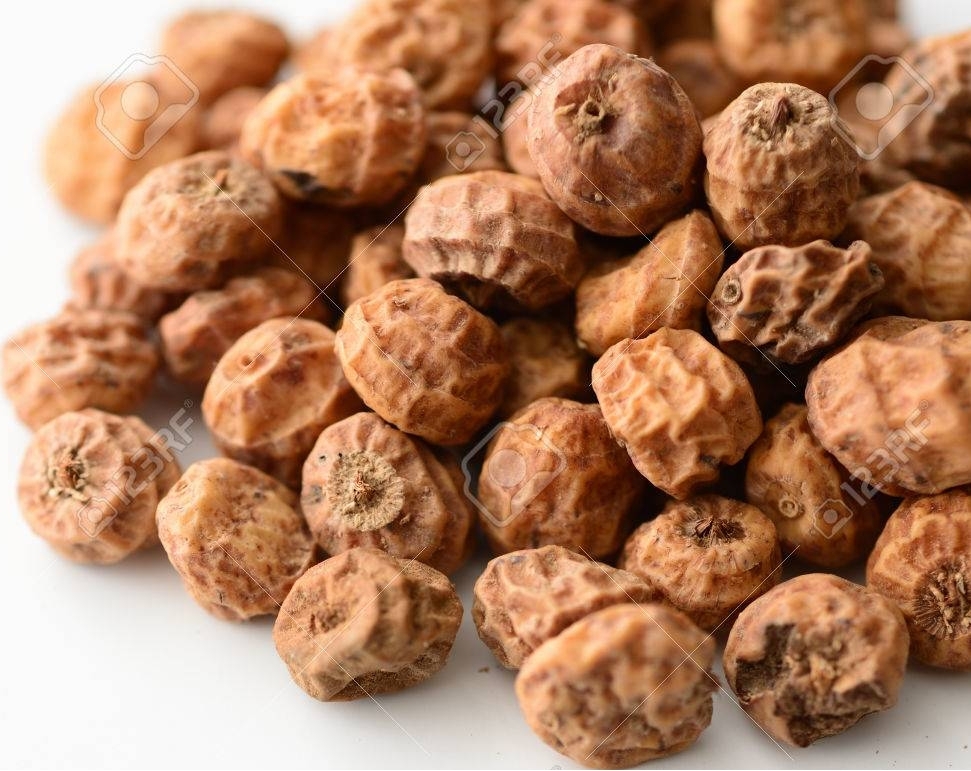It is globally accepted that Africa hosts the natural resources that make the world go round, including little known ones like tigernuts which practically grow as weeds in Nigeria.

Yet, Africa is projected in the international media as the land of poverty and mayhem. This bleak picture will change as her people begin to harness and promote the natural resources in the continent.
An erstwhile member of the House of Representatives in the early 80s, Late Hon. Paul Mtshelia, got the spark to seek mining concessions in Nigeria from a German radio programme he listened to while on an IPU (Inter Parliamentary Union) Mission.
He was shocked to hear the foreign radio analyzing the mineral resources in Africa; earmarking them as strategic reserves for their industrial minerals security.
The programme even announced that Africa was potentially the richest continent on earth. On his return, he immediately embarked on exploration activities that led to the discovery of Gypsum (or rediscovery?) on the Yobe pad in 1988.
Although his mining foray was a financial pall, he succeeded in beating tracks of defiance against that pronouncement which can be built on to develop and utilize our mineral resources. Today, Gypsum mined in Nigeria is utilized in cement production.
Nigeria’s case is especially pathetic because the one natural resource the country has come to lean so heavily on for years is now a source of conflicts, restiveness and a reason for the eroding culture of gratuitous ease that now stunts creativity and industry.
Oil has brought money to Nigeria but hardly wealth. Today, much of the Petroleum Motor Spirit utilized in the country is imported while the naturally occurring oil is exported in barrels which we count like the days of our lives, in exchange for petrodollars.
Arguably, were Nigeria to maximally harness its oil potentials, it will still deliver fortunes to the national vault. In addition to that, the alarming and defacing indexes that presently define our economic profile will receive an overdue makeover.
The agitation for the diversification of Nigeria’s economy is so badly hackneyed that it gives a blurring headache. Even if the nation is yet unable to develop her other resources for now, it is unimaginable that she is still at the stage of exporting crude oil and importing more expensive processed products.
If the nation does not get it right in the oil industry where the feasibility is a given, how do we muster the momentum to do better in other yet to be explored areas? Fortunately, the President is beginning to talk about crude processing as a cardinal programme to be vigorously pursued and all eyes are straining to see this actualized.
The ability to rise from inertia and process our most celebrated natural resource would give an impetus for the development of the nation’s other numerous resources begging for attention. Is our industrial liberation (or should I say, revolution) at hand?
Some of the resources that would benefit from this awaited renewal include our steel resources. The current administration probably understands that it may not credibly leave office without doing something reassuring about the investments at the Ajaokuta Steel Complex.
Therefore, it appears to be frantic about a revamp of the Company and the Itakpe Iron Ore Mining Company. If the country would seriously embark on beneficiation and utilization of her solid minerals resources, Nigeria would soon trample the challenges of unemployment and poverty into rubble.
Congruently, Umar Bamaiyi, former CEO of the Nigeria Institute of Mining and Geosciences confirms the occurrence of Sapphire, the most highly priced precious stone, in Nigeria. Should my clamour for the establishment of lapidaries across the country accompany this discovery, we would soon have another reason to further upgrdade our erstwhile rebased GDP.
The aforementioned sectors are perceived as the high profile and more sophisticated areas of enterprise. There are simpler and more affordable areas- especially from agricultural products.
When former Minister of Agriculture now AFDB head, Dr. Akinwunmi Adesina visited the Federal Institute of Industrial Research, FIIRO in 2013, he emphasized the need to value indigenous brands like the 20% cassava bread; rebranding FIIRO’s cassava bread as ‘Cassy’.
In Jamaica, their local bammy bread is projected as a ‘ritual’ to be experienced when visiting that country. This is what we ought to be doing with our own locally occurring resources. Even where processing methods are yet to be perfected for international competitiveness, we can promote them for local consumption until we perfect the technologies.
One natural resource that inspired today’s write-up is the tigernut (Cyperus esculentus), a small tuber of the sledge family known for its nutlike taste. According to Dr. Gloria Elemo, former DG of FIIRO, the Institute is already taking a keen interest in the development of food products from tigernuts.
Tigernuts grow wild in the middle belt and its environs. It is called ‘aya’ in Hausa, ‘imumu’ around Lagos and ‘aki awusa’ by the Ibos. In the cities, it is hawked in barrows and chewed raw like groundnuts.
Yet, it drips with an alternative milk source, especially for the aged and children who may be unable to tolerate dairy products. Those who travel to Spain enjoy the celebrated horchata de chufa, a sweet drink made from tigernuts.
This is one area that entrepreneurs can take up to produce nourishing and healthy milk from a readily available natural resource.
to be continued

